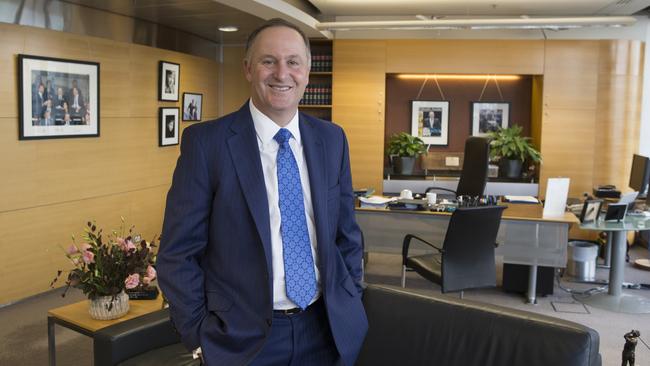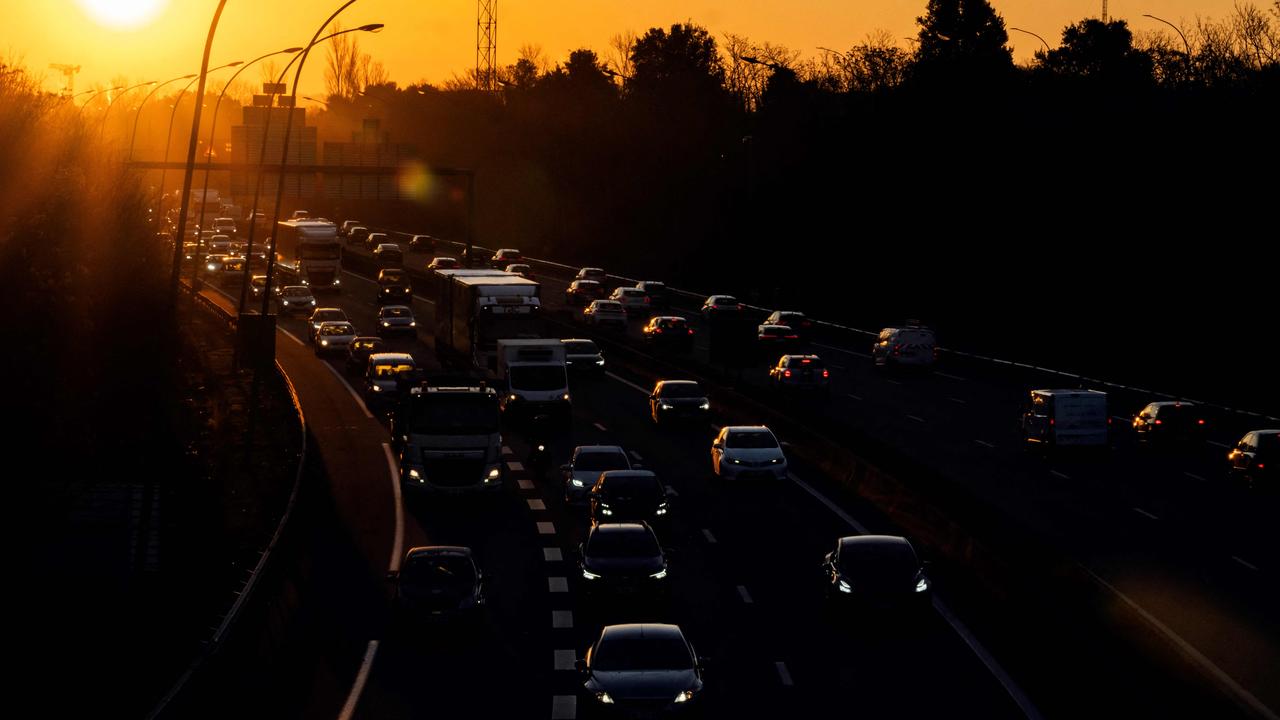
Former New Zealand prime minister John Key says he resisted pressure to be more outspoken on China, saying it was important to maintain a relationship with his country’s biggest trade partner which was also emerging as one of the world’s economic superpowers.
Key, the career investment banker who was New Zealand’s prime minister for eight years before retiring from politics in 2016, also says China’s expansion in the Pacific is more “nuanced” than what many perceive as a military threat. Rather Key sees its push into the region as a superpower that is seeking global support.
“I just don’t see them as the aggressor that everybody else sees,” he tells The Australian in an interview in Auckland.
As a former leader of New Zealand’s centre-right National Party who won three general elections, Key says he took the view that the more a country embraced China with trade, the more likely Beijing is become engaged on issues when concerns were raised.
“It’s not a matter of being blind to all the issues. But in a world where the economic momentum and mass of China is so great … you can’t ignore the fact that China is intent on developing its own economy and lifting millions out of poverty”.
His comments come after a period of risings tensions between Canberra and China — which remains Australia’s biggest export market, buying more than $180bn of iron ore, coal, gas and agribusiness annually, although restrictions have ultimately been placed on coal, wine and barley.
Key visited Beijing several times as prime minister and during his tenure Auckland negotiated a free trade deal with Taiwan, which Beijing asserts is part of China. Key’s government also opened talks in 2016 to modernise New Zealand’s longstanding free trade agreement with Beijing. At the same time he was close to former US President Barack Obama.
Since retiring from politics, Key became the New Zealand chairman of ANZ Bank and he also sits on the advisory board of global energy giant BP. He has previously sat on the board as a director of Air New Zealand. Key also says he had “positive interactions” with Australian Prime Minister Anthony Albanese from his days visiting Australia.
He notes New Zealand is a small country “that no one owes a living to”, which means it has to be an efficient export nation to survive.
New Zealand sells more than $20bn of goods to China, or around a third of its global exports. In some markets such as dairy or timber, China represent more than 40 per cent of sales.
It is clear the world is starting to polarise and given tensions are rising globally, leaders have to be cautious not to inflame the situation.
“I think that we are quite capable of making our point, we just don’t have to do it with inflammatory language,” Key says.
His personal view is that US House speaker’s Nancy Pelosi’s trip to Taiwan early last month — which drew stark opposition from Beijing — was “incredibly reckless” for the region and a “provocative” act.
He notes when his National Party came into government in 2008, China was the economic force of “good” that stopped the global economy falling into recession while the US and Europe were battling a deep financial crisis. The global perception later changed following the election of US President Donald Trump, who became involved in an all-out tariff war with China and in a process forced much debate around the Asian giant.
Key points out that current issues putting China off-side from the west — Taiwan, South China Sea and Hong Kong — were the same issues that dominated global politics as much as 15 years ago.
And while New Zealand is sometimes under pressure to be more outspoken on China, he says it is worth reminding many from the outside that his country already has deep historical relationships with many Western nations alongside a clear relationship with Beijing.
“It’s a very business orientated relationships and mercantile relationship (with China). We sell things, they buy things. But the question becomes, if you have an improving good relationship, does it give you better authority will cut through to actually tackle other issues that you might be concerned about?
“I was always of the view that it does and I didn’t really see the logic in it why we had to choose one side or another. Sure it suited our economic argument. But actually, I reckon there’s a fair bit of truth to it.”
Elsewhere, Key cautions on massive wage inflation feeding into general inflation — with labour shortages driving NZ median weekly earnings up 8.8 per cent in the year through June. Higher wages without productivity gains mean “you just end up in a fool’s paradise” because by definition the price of everything goes up.
He says all governments around the world are facing a tough situation with risk of recession while inflation is still raging — giving limited options of how to stimulate the economy without further stoking more pricing pain. But he believes all governments, following the massive Covid-19 spending programs, now need to restore fiscal responsibility.
Meanwhile, as Australia heads into a debate around enshrining an Indigenous Voice in parliament, Key says in New Zealand’s case the path to repairing relations with Maoris makes it a better country.
It continues to be “very long journey” for successive governments but the Treaty of Waitangi signed in 1840 between the Crown and Maori chiefs has given structure around repairing the relationship. In New Zealand there is greater critical mass across business and community given more than 15 per cent of the population identifies as Maori.
Key acknowledges that some New Zealanders have felt things were moving too fast, particularly when language changes, but says getting race relations right is important for the country’s future.
“We’re a little country, we can either be scared of ourselves or we can be one that’s aspirational and ambitious and confident”
The author visited New Zealand as a guest of ANZ



